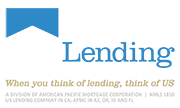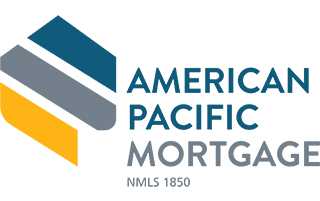Veterans And Preparing For VA Closing Costs
The VA loan program was established to help make it easier for veterans to become homeowners.  They do this by eliminating the down payment, which is a large upfront cost that other types of mortgages usually require. However, even without the need to make a down payment, you will still be required to pay for a number of closing costs.
They do this by eliminating the down payment, which is a large upfront cost that other types of mortgages usually require. However, even without the need to make a down payment, you will still be required to pay for a number of closing costs.
VA Loan Closing Costs Overview
The closing costs of a VA loan (or any home mortgage loan in general) consist of all of the fees involved in the homebuying process. These fees are paid to any number of involved parties, including the lender, title company, or real estate agent that you might be working with. Being familiar with the typical closing costs will likely be will make it a lot easier for you to budget for and prepare for a home purchase if you are applying for a VA loan.
Average Closing Cost
The average closing costs of a home purchased using a VA loan varies a little bit. For larger home purchases, expect to pay between 1 and 3 percent. For less expensive home purchases, closing costs are more likely to range from 3 to 5 percent. Many factors contribute to the total closing costs of a home, including the lender you’re using and the location of your home. The VA enforces a cap on what you can pay in closing costs as well.
VA Loan-Related Closing Costs
Some of the specific closing costs that you can expect to pay if you take out a VA loan include:
Origination Fee
Origination fees are charged by the lender as compensation for their services. They cover a variety of services and tasks executed by the lender, including gathering and organizing your documents, analyzing your income, requesting information from your employers and the IRS, verifying the accuracy of your documents and information, and making sure your application meets all of their criteria. VA-approved lenders cannot charge more than 1 percent for their origination fee. In some cases, the lender may have a list of processing fees instead of a single origination fee. If this is the case, these fees cannot add up to exceed 1 percent.
Appraisal Fee
To be eligible for a VA loan, the property you are purchasing must be in good condition and must be properly valued (meaning that the loan cannot exceed the value of the house). To ensure this, the lender will require an appraisal of the property. The appraisal determines the value of the property as well as grades how safe, sanitary, and structurally sound the house is. The appraisal fee varies slightly from state to state, but it’s typically around $500.
Title Fees
The title fee is the fee for having a search done on the title of the house to ensure that nobody other than the seller has a claim to the ownership of the property that you’re buying. You may need to pay for two types of title insurance: the lender’s title policy, which will protect the lender’s investment, and the owner’s title policy, which will protect you. Title insurance only requires a one-time upfront fee, but expect to pay anywhere from a few hundred dollars to $2,000. The cost varies greatly depending on the size of the property, it’s location, and the title insurance company.
Discount Points
Discount points are optional and they’re not something that all VA-approved lenders offer. Essentially, they are a way to pay lower your interest rate. One point equals one percent of your loan amount. By paying more upfront, you permanently lower your interest rate.
Credit Report
To determine whether you will qualify for a VA loan, your lender will need to pull your credit report. Your credit report includes your credit score as well as your credit history (which provides details like the amount of debt you’re carrying, whether you pay your bills on time, and more). Pulling a credit report requires a one-time fee of $35.
Well, Septic And Termite Inspection Fees
You will need to pay to have the property’s well and the septic system inspected to ensure that they are safe and sanitary. Either the seller or the buyer will need to pay for any repairs required to the well or septic system in order for a VA loan to be approved. Additionally, either the buyer or the seller will need to pay for a termite inspection. It’s worth noting that the buyer is not allowed to pay for the termite inspection in 41 states, which means that the seller typically has to cover this fee.
Non-Allowable VA Loan Fees
Non-allowable VA loan fees are fees that the VA does not allow the borrower to pay. Some of these fees are commonly applied to traditional home loans. If you’re taking out a VA loan, you won’t be responsible for any of the following fees that you would likely have to pay were you to take out a traditional home mortgage:
Closing Fee
The closing fee, also known as an escrow fee, is the fee that escrow companies typically charge for the tasks that they perform, which include collecting and distributing all of the money involved in the sale of the house. This includes collecting earnest money, down payments, closing cost assistance from the seller, and more to distribute to the appropriate parties at the closing. The VA does not allow veterans to pay these escrow fees (a nice benefit, considering that they can be quite expensive).
CPL
The CPL (closing protection letter) is a letter that makes the title company responsible if escrow doesn’t properly collect and disburse the loan proceeds. The CPL fee is sometimes charged separately and sometimes rolled into the escrow fee.
Processing Fee
Veterans cannot pay for any fees charged by the lender for processing and underwriting a VA loan. These fees typically range from $300 to $1,500 on traditional home loans.
Postage Fees
If documents need to be sent via an overnight service in order to be signed and they cannot be emailed or faxed, the escrow company will sometimes charge the borrower for postage fees.
Notary Fees
The escrow company will require the borrower to sign documents. In some cases, they will send out a notary for a signing appointment with the borrower outside the escrow company’s office. They will typically charge the borrower a notary fee for this service.
Application Fee
Some lenders charge an application fee for processing a loan application. Veterans cannot pay for such fees on a VA loan.
Tax Service Fee
Lenders usually charge a tax service fee on conventional mortgages to ensure that the borrower pays their property taxes on time. It essentially protects the lender’s access to the home as collateral should the borrower not pay their property taxes. The tax service fee is generally around $50.
Mortgage Broker Fee
Mortgage brokers work as intermediaries between lenders and borrowers. On conventional loans, they often charge borrowers a mortgage broker fee.
Who Covers For Non-Allowable Fees
There are a number of ways that these non-allowable fees can be covered. In some cases, the seller can cover the costs of these fees. However, they can only contribute up to 4 percent of the sale price or the appraised home value — whichever is lower. If the seller can’t or won’t cover any of these non-allowable fees, then the lender can pay for them through a lender credit in exchange for a higher interest rate on your loan. They can also just charge the maximum amount of 1 percent for the origination fee and use that to cover those costs.
Covering Closing Costs
Closing costs can amount to a significant cost that you may not be able to pay upfront. However, you have a few options. First, you can attempt to bargain with the seller. The seller can help with not just the non-allowable closing costs, but the other closing costs as well.
If the seller won’t pay for your closing costs, then you could have them rolled into your VA loan so that you don’t have to pay for them upfront. However, the only way to do this is to get the seller to temporarily cover your closing costs upfront. If they agree, then the lender will be able to increase your VA loan by that amount. This way, the seller will get the money they put up for your closing costs back almost immediately.
Concessions That May Be Available
As previously stated, the seller can make concessions but only up to 4 percent of the total cost. There are a few other concessions that may be available. For example, your real estate agent may be willing to contribute to your closing costs in the form of a credit to help close the sale. Real estate agents are often willing to do this because they will usually get a fee in the form of 3 percent of the home’s sale from the seller (it’s usually 6 percent, which is then split between the seller’s agent and the buyer’s agent). Since this is a significant amount, the agent may be willing to help out to ensure that they get their fee.
The lender can also help out by offering a credit by adjusting the interest rate on your loan. Think of it as the reverse of a discount point.
The Loan Estimate
The loan estimate is a document required by the lender that details all of the fees included in the closing costs. It gives you the chance to see exactly how much you’ll owe and exactly what items you’re being charged with.
Key Features
The loan estimate includes the following:
- The amount of the loan.
- The interest charged on the loan.
- The monthly principal and interest payments as well as the total payment you’ll have to make every month.
- An itemized list of all of the closing costs that you will have to pay, including the origination fees, the title insurance, the appraisal fees, and more.
- An itemized list of all of the other costs you will be responsible for at the closing, including homeowner’s insurance, interest charges, and prepaid taxes.
- An estimate that details how much cash you will need at the closing. This includes not just the closing costs and pre-paid costs, but also the VA funding fee.
- Information about the loan’s APR (annual percentage rate), TIP (total interest percentage), borrowing costs, appraisals, late fees, loan servicing, assumptions, and more.
Reviewing Paperwork is Crucial
Make sure that you review your loan estimate carefully and that you ask the lender any questions about the VA loan or its application process that you might have. You’ll want to know exactly what you will owe in terms of closing costs. If you can’t afford the costs listed on the loan estimate, ask about potential concessions. Don’t forget that you can obtain a VA loan through numerous VA-approved lenders. Take your loan estimate and compare them to the loan estimates of other lenders. You may be able to find a better deal and you may be able to use one estimate to get a lender to reduce the costs on another.
VA Loans Are Different Than Conventional Loans So It Pays to Know in Advance
VA loans are very different than conventional loans. Do your due diligence when preparing for a VA loan application. Understanding the upfront costs of a VA loan is important. Even though there are certain closing costs that you won’t have to pay, there are other fees that you will be required to pay that aren’t charged on conventional loans, such as the VA funding fee. Get an idea of what it will cost to close a loan and what your options are by familiarizing yourself with the VA loan program. This will make it easier to budget for your home purchase and to prepare yourself for the homebuying process.
The views, articles, postings, and other information listed on this website are personal and do not necessarily represent the opinion or the position of American Pacific Mortgage Corporation or US Lending Company.
* For loan examples and more information visit our disclosure page at https://www.uslendingcompany.com/disclosures/





